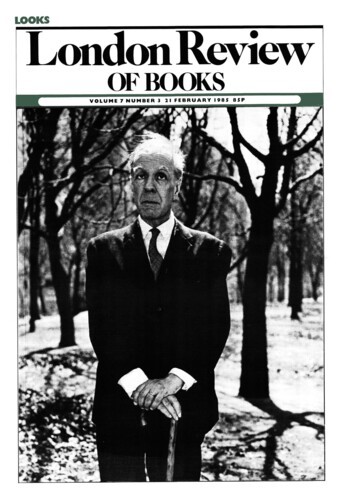You knew you were lucky, born all of a piece and born into peace.
So why were you seeing your father off from the flagstone step
wearing your sweet little cowboy suit – distressed leather chaps
with grubby fringes – and him in his real, steely-pressed uniform?
Once in a while he would take you: Daimler sickness
swaying to Salisbury Plain, and a rainy weekend of firing –
a privileged view from a rise, which meant counting the seconds
from crash – one, two – watching a cut-out tank half-hidden by gorse
silently stagger – three, four – then the whump of its brisk eruption.
Nothing connected with anything, even then – not thoughts
with things, or you with him (what did it mean
to be lucky?) – no matter how hard you tried.
Twenty years on they’re still at it: you find yourself driving
each week over Salisbury Plain to stay with the person you love,
and here, west from Stonehenge, are those views you remember,
and tank tracks scribbled on chalk, their churned-up pastry mud
trailing off into nothing. The tanks themselves are rare –
as if someone were trying to tell you there mightn’t be many –
but you know it only takes lying in bed of a morning (the children
not yet awake, and none of your neighbours about in the village)
to hear how resourceful they are. Just when you might be
turning to face her, her eyes still shut, and discovering
whether she wants you or not, their firing will suddenly start –
a barrage of muffled thumps, like someone heavy walking about
on the floor above (there is no floor above), or slamming a window
in heaven. It never lasts long, and at the beginning you said
It’s one of those things, you know, soon I won’t notice it’s there
but you always do – the more, in fact, the more time passes
and sometimes you even imagine it. You will be arm in arm,
perhaps, on that wind-swept, bare, slow-climbing down
overlooking the house, and will think of a sound which is faint
and yet somehow enormous – enough to make grass seem to swerve
or trees to rustle their leaves – and sometimes they will.
When it ends you are stuck with the thought you never expected
(because you were lucky), and cannot quite feel is your own:
that what you are hearing as practice is what will come true –
that soon you will die, and not only you but this person
you love, her children, everyone else; that no one prepared you
for this – no matter how early you realised nothing connected
with anything, ever; that even with her walking arm in arm,
and this place, which could be, easily, anyone’s favourite –
a watercress stream, a church tower lightly shadowed by limes,
and the ploughland behind it smudged with patches of chalk –
there’s no one to save you now, nowhere to hide in, no time for hope.
Send Letters To:
The Editor
London Review of Books,
28 Little Russell Street
London, WC1A 2HN
letters@lrb.co.uk
Please include name, address, and a telephone number.

